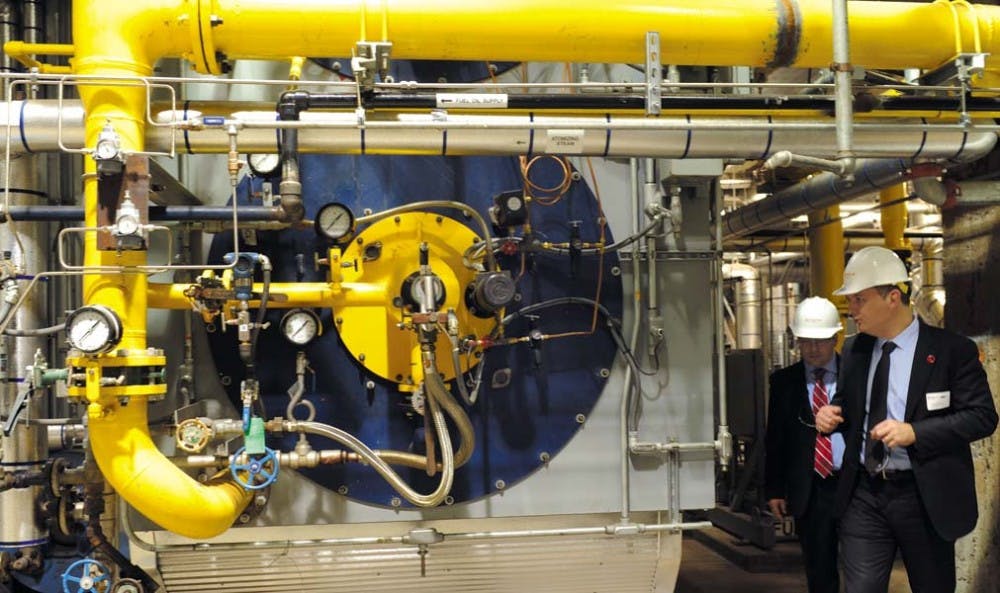
The steam which powers Penn’s dorm rooms and lectures halls has gotten a lot greener in the last month.
As part of its 20-year steam supply agreement with Penn, Veolia Energy agreed to commission two new, lower-emission rapid response boilers to provide the campus’ steam, which could move the city as much as 10 percent towards its energy efficiency goal.
The two new boilers, part of Veolia’s “Green Steam Project,” were inaugurated last month in a ribbon-cutting ceremony with Mayor and 1979 Wharton graduate Michael Nutter.
“We were able to retain our largest customer for a long time while being more cost-effective and environmentally friendly,” Michael Smedley, Veolia Energy’s vice president for the Mid-Atlantic region, said.
Penn represents 40 percent of Veolia’s business in Philadelphia, according to Smedley.
Ken Ogawa, Penn’s executive director of operations and maintenance, said that the new boilers will “reduce the carbon footprint not just for Penn, but for the whole city of Philadelphia.”
This is because the pipes that carry the new, cleaner steam do not just go into University City. Instead, they travel to many different regions in Philadelphia.
The steam is used for heating, hot water and “everything else that requires thermal energy,” according to Ogawa.
The end goal for Veolia is to have all of its boilers run completely on natural gas, which is less harmful for the environment than oil. As a result of the new boilers being put into operation, a number of less fuel-efficient boilers, which used oil, were taken offline.
According to Veolia, the project is the equivalent of taking 11,570 cars off of the road.
Unlike the old boilers, which had to be on at all times, the new boilers save energy partially by not needing to be operational at all hours of the day, according to Ogawa.
He also said that the project fits into the University’s Climate Action Plan. The Penn Green Campus Partnership takes on a number of facets, including energy conservation, green building design and waste minimization.
“We are trying to be as efficient as possible,” Ogawa said. Nevertheless, utilities make up 85 percent of Penn’s carbon footprint, a figure that he believes this project will decrease.
The end goal, according to Ogawa, is for the University to be carbon neutral by 2040.
Veolia owns all the pipes up to the University’s boundary, while Penn owns the pipes under its campus. However, Veolia “is investing in maintenance for our system to make sure we don’t lose much efficiency,” according to Ogawa.
In addition to the University’s plan, the new boilers also impact the city’s goal of sustainability. When Nutter was inaugurated in 2008, he set a goal of making Philadelphia much greener. This effort included the creation of the Mayor’s Office of Sustainability.
The office is in charge of making the city greener through 15 different targets in areas such as energy usage, according to Policy and Program Manager Alex Dews.
The biggest goal the office works on is reducing the city’s greenhouse gas emissions by 20 percent from 1990 levels.
“A lot of the work doesn’t happen in city government,” Dews said. “This is great example of how the private sector’s innovation and partnership with Penn will drive us towards that goal” of a more environmentally-friendly Philadelphia.
“We were glad to help the city achieve a portion of its energy efficiency goals,” Smedley said.
The Daily Pennsylvanian is an independent, student-run newspaper. Please consider making a donation to support the coverage that shapes the University. Your generosity ensures a future of strong journalism at Penn.
DonatePlease note All comments are eligible for publication in The Daily Pennsylvanian.




